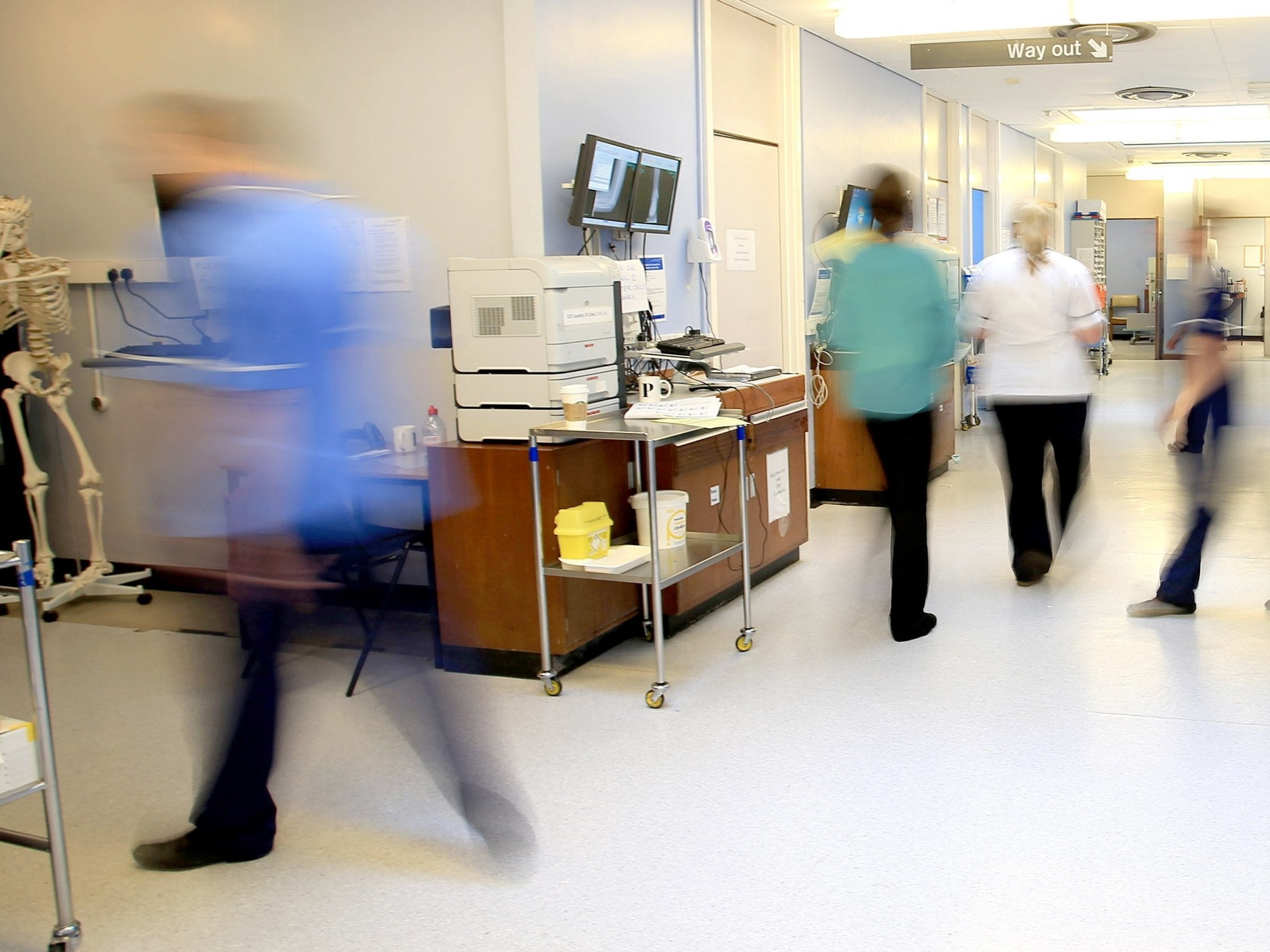NHS to ban the use of pagers within the next three years
Pagers are costing the NHS £6.6 million annually

Your support helps us to tell the story
From reproductive rights to climate change to Big Tech, The Independent is on the ground when the story is developing. Whether it's investigating the financials of Elon Musk's pro-Trump PAC or producing our latest documentary, 'The A Word', which shines a light on the American women fighting for reproductive rights, we know how important it is to parse out the facts from the messaging.
At such a critical moment in US history, we need reporters on the ground. Your donation allows us to keep sending journalists to speak to both sides of the story.
The Independent is trusted by Americans across the entire political spectrum. And unlike many other quality news outlets, we choose not to lock Americans out of our reporting and analysis with paywalls. We believe quality journalism should be available to everyone, paid for by those who can afford it.
Your support makes all the difference.Pagers will be banned from the NHS and staff with instead use mobile phones, the health secretary has announced.
In a bid to cut costs and improve communication, health secretary Matt Hancock has said that pagers will be phased out of the NHS within the next three years.
The NHS currently uses more than ten per cent of the world’s pagers, with 130,000 of the devices costing around £6.6 million annually, according to a 2017 report.
The "outdated" technology only offers one-way communication, which means doctors are often unaware how urgent a request is and face difficulties deciding how to prioritise patients.
Health officials say mobile phones make it easier to share information and offer a cheaper alternative.
Most mobile phone companies have stopped supporting pagers and a single device can now cost up to £400.
Mr Hancock said the health service must "harness the huge potential of technology" to save lives and ease pressure on the workforce.
"Every day, our wonderful NHS staff work incredibly hard in what can be challenging and high-pressured environments," he said.
"The last thing they need are the frustrations of having to deal with outdated technology - they deserve the very best equipment to help them do their jobs.
"We have to get the basics right, like having computers that work and getting rid of archaic technology like pagers and fax machines.
"Email and mobile phones are a more secure, quicker and cheaper way to communicate which allow doctors and nurses to spend more time caring for patients rather than having to work round outdated kit."
NHS trusts have been told they have until the end of 2021 to phase out pagers – but some have already embraced alternatives.
Communications app Medic Bleeps, which is comparable to WhatsApp, saved junior doctors 48 minutes per shift and nurses 21 minutes on average during a 2017 pilot project at West Suffolk NHS Foundation Trust.
NHS Trusts will be allowed to keep some pagers for emergency situations, such as when WiFi fails.
Dr Helen Fidler, BMA consultants committee deputy chair, described the decision as “bold”.
“While encouraging, the results of a pilot of one app do not necessarily mean that such technology is suitable for every trust. Pagers are a tried tested technology trusted by doctors and the proposal to ultimately replace all hospital pagers with new technology is a bold one,” she said.
“While the BMA will play its full part in engaging with doctors, trusts and the Government to ensure the transition is a smooth one, the Health Secretary has not discharged the considerable burden of proof in convincing doctors that whatever replaces pagers will deliver the benefits he has been led to believe.
“Furthermore we know that doctors experience frustrations with basic IT infrastructure across the NHS, with various computer systems outdated and often unable to communicate with one another – and it this that should be prioritised.”
The latest announcement comes after it was announced that fax machines would be banned across the NHS in a bid to improve patient safety and cyber security.
The outdated technology will be phased out by 31 March 2020 under new plans.
NHS organisations will be required to use modern communication methods instead, such as secure email.
Additional reporting from agencies
Join our commenting forum
Join thought-provoking conversations, follow other Independent readers and see their replies
Comments